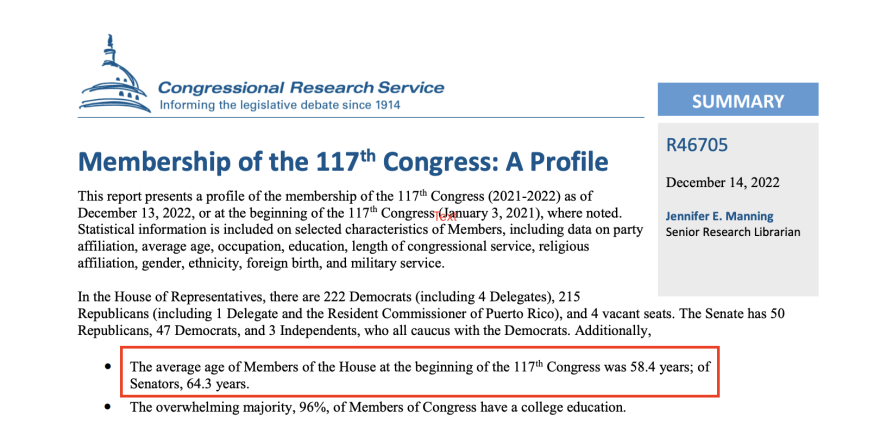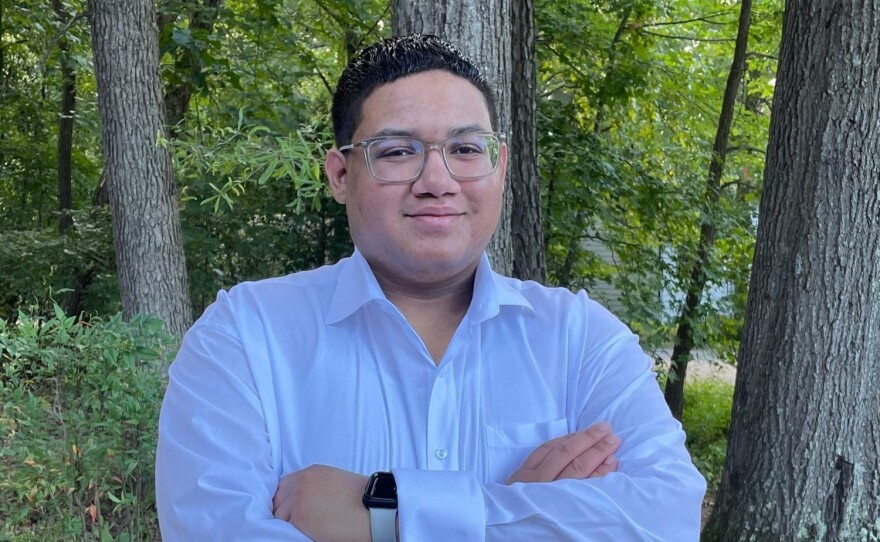In November, a handful of Gen Z candidates ran for federal office — with one winning a seat in Congress.
The number of young candidates vying for state offices nationwide is much higher, though. (The Pew Research Center defines Generation Z as anyone born between 1997 and 2012.)
“We actually tracked this past election cycle,” said Layla Zaidane, president of the Millennial Action Project. “[There were] 261 Gen Z candidates who ran for state legislative office. In 2023, there're about 75 who actually won, who are serving in state legislative office. That's compared to 27, the year before.”
The Millennial Action Project is a nonpartisan nonprofit that tries to connect young policymakers, regardless of party, to encourage collaboration.
“That one simple thing, helping people connect with each other across lines of difference, opens the door to bipartisan policymaking,” Zaidane said. “We help connect them to policy experts to actually do the hard work of legislating. We also give them professional development.”
Young people are winning elected offices in Virginia as well.
In 2021, Del. Nadarius Clark of Portsmouth — at 26 — became the youngest Democrat ever elected to Virginia’s General Assembly. And 19-year-old Isaac Kelley recently became the youngest person to serve on the Timberville Town Council in Rockingham County.
Locally, 18-year-old Chesterfield County resident Jason Melendez is going to run in the Democratic primary this June against Supervisor Jim Holland. Holland has represented the Dale District since 2008, when Melendez was about 4 years old.
Melendez said he’d be better able to serve young constituents.“They need to have someone that's living the experience of a young person right now,” Melendez said. “The experience is a little bit different from what [current elected officials] might have had when they were a young person.”
Melendez said if elected to office, he would push back against state guidance regarding the treatment of transgender students and work to defend educators’ rights. He’s also calling for the county to adopt a climate action and resiliency plan.
The VCU freshman said it’s important for people his age to run for office.
“Especially at the municipal level where they can make the most impact,” Melendez said. “I believe state legislatures [are] great, Congress is great. But I believe on the board of supervisors, I can make more immediate impact on day one than I could do at Capitol Square in Richmond.”
If Melendez wins in November, he will become the youngest person to serve on Chesterfield’s board. The youngest person to serve on the board was Renny Humphrey, who in 1988 was not only the board’s first woman chairperson but also its youngest at 33 years old, according to the Chesterfield Observer.

Millennials and Gen Z see hurdles to running for office, though. One of the major hurdles younger candidates have when they decide to run for office, Zaidane said, is a lack of money.
“Younger people are less likely to be connected to networks [and] have wealth,” Zaidane said. “That is absolutely a huge barrier to running the campaign, getting your message out there, recruiting staff to help knock on doors, all of that. It really becomes much harder when you don't have a ton of money.”
Zaidane added that lacking money presents issues once candidates are elected, too.
"If you're able to surmount that barrier of not having a network to tap into to raise money for your campaign, once you're elected, a lot of state offices really do not pay their state legislators very much,” she said. “So now, not only did you not have money before, now you've given up your full-time job in order to do the role of a state legislator.”
VPM News tried to confirm how much Chesterfield County’s supervisors are currently paid; the last immediately available data from the Virginia Association of Counties listed annual salaries as of 2010-11. So, 12 years ago supervisors were annually paid $33,726; the board chairperson was paid $39.876.
Supervisors' salaries are based on population: In the 2010 data, that was $107 per 1,000 residents. Chesterfield County’s population was 364,548 as of the 2020 census — which would work out to about $39,006.64 for a supervisor's salary in 2020-21. Chesterfield's median household income was $88,315 in 2021 dollars, according to the US Census Bureau.
Despite a potential lack of funds, Zaidane said Gen Z candidates have sway when they decide to run.
“I do think that Gen Z candidates are really savvy in how they connect with their voter base,” she said. “How are we using social media to distribute ads and as fundraising platforms? I think that is something that's only going to increase in importance. Gen Z candidates, even at the very most local level, are really good at leveraging those kinds of tools.”
Zaidane said she’s inspired by the number of Gen Z candidates her organization is tracking, because they seem to run toward issues that are affecting them.
“Gen Z, those who have been impacted by things like climate, like the economy, like gun violence, by education,” Zaidane said, “[aren’t] seeing others solve those problems for them, and instead saying, ‘I guess I'm the one to solve this problem.’ That is incredibly inspiring.”



